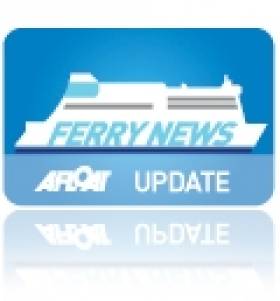Displaying items by tag: Stena Super Spring Sale
Stena HSS Is Back for Easter and Summer Service
#HSSisBack–The HSS Stena Explorer fastcraft is back on the Dun Laoghaire-Holyhead route and Stena Line have a 'super spring sale' giving customers the opportunity to save up to 20% off its lowest fares.
The offer is available for travel up until 30 June from Dublin-Holyhead, Rosslare-Fishguard and on the Dun Laoghaire-Holyhead seasonal-only service.
Diane Poole Head of Stena PR and Communications said: "With Easter just around the corner and school holidays, we're offering customers the chance to enjoy a short break without breaking the bank".
The sale which starts with a lowest fare of €89* single (see web for T&A) for car and driver is now available every day of the week allowing people to save up to 20% on travel when they book by 28 February.
The HSS will operate one departure from Dun Laoghaire and Holyhead daily during this season, for information on the Spring sale and more visit: www.stenaline.ie/sale
























































